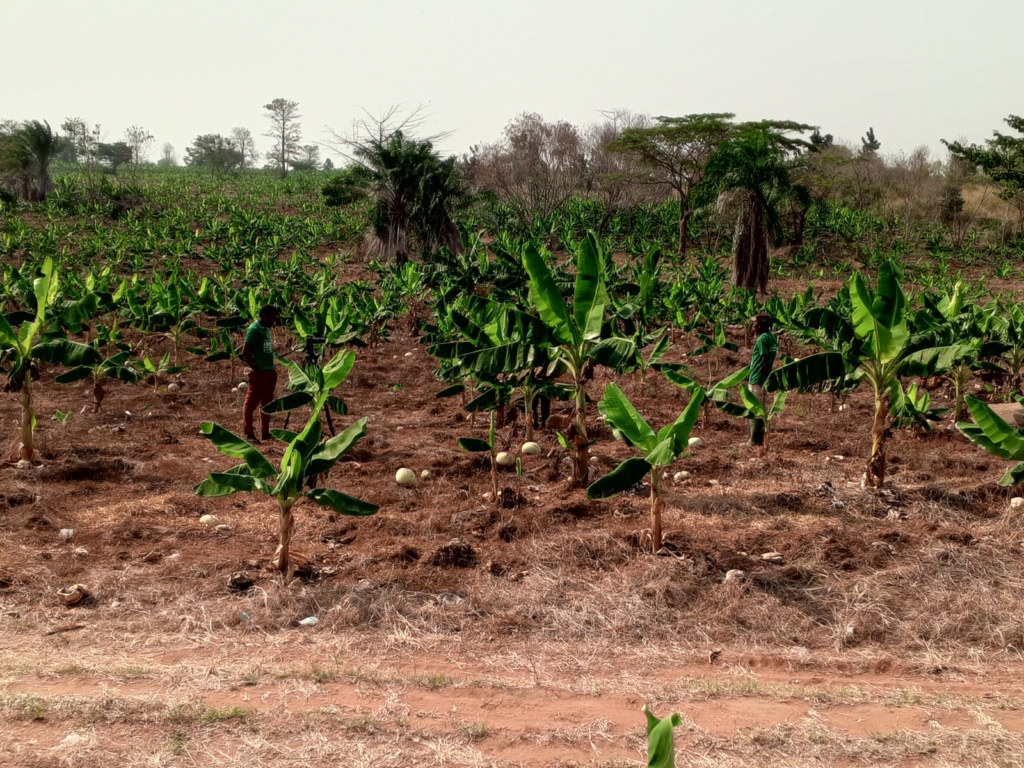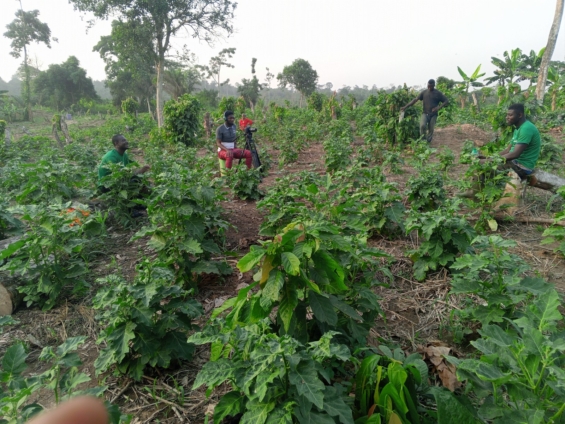As climate change continues to threaten food security in Ghana, a new homegrown solution is giving struggling farmers a renewed sense of hope. Organic Farming Aid (OFA), a cost-effective and environmentally friendly product, is helping farmers across the country boost crop yields, improve soil health, and reduce the impact of extreme weather.
In communities from Ashanti to the Northern Region, farmers who once feared for their livelihoods are now seeing change. One such farmer is Frimpong Manso from Ayenasu in the Ejura Sekyeredumase Municipality of the Ashanti region. For years, Frimpong watched his maize yields decline as soil fertility dropped and rainfall became more erratic.
“I was struggling to make ends meet,” he says. “But after using OFA, my maize crops started growing beautifully. And I’ve spent less money this season.”

Farmers like Musah Zakari, Solomon Tettey, and Amina Braimah in Konongo also share similar experiences. Their garden egg farms, once plagued by pests and poor yields, are now thriving.
“Our garden looks so green and healthy. We’re expecting a bumper harvest,” Musah explains.
OFA is making a big difference, especially for farmers with larger operations. In Agogo, 64-year-old Samuel Frimpong has farmed plantain on 70 hectares since 2002. Rising fertiliser and labour costs had nearly pushed him out of business.
“I used to buy 70 bags of fertiliser and spend 500 cedis daily on labour. But the costs kept rising, and my yields dropped,” Samuel recalls. “Now, OFA is helping turn things around.”
In Kumbungu, farmers like Isaiah Yahaya Moses and Seini Abdul Rafiu are seeing healthier crops and more stable harvests despite ongoing climate challenges.
“I started using OFA, and it’s been a blessing. My crops are thriving,” Isaiah notes.

At the HJA 4th Annual Forum in Tamale in the Northern region, dozens of farmers gathered to share their stories of transformation. Chief agronomist for HJA Africa, the producers of OFA, Gilbert Osei, says the product’s eco-friendly properties make it a standout option.
“OFA is safe for both farmers and consumers. It reduces stress on crops, improves shelf life, and boosts profits,” Gilbert explains.
Chief Executive Officer of OFA, Henry Abraham, says the product has not only improved productivity but has also helped farming communities earn more. “In 2024 alone, OFA has contributed an estimated $20 million in increased incomes to farmers,” he says. “This is a Ghana-made solution, and it’s making farming more sustainable and rewarding.”
As Ghana faces the growing threat of changing weather patterns, OFA is proving to be more than just a product—it’s a lifeline for thousands of farmers who are fighting to keep their lands productive and their families fed.
Latest Stories
-
Mahama thanks Eastern Region, unveils bold infrastructure plan
10 minutes -
NPP will not release 2024 Election Report – Oppong Nkrumah
17 minutes -
GUTA threatens mass protest over foreign intrusion in retail sector
43 minutes -
Defence Minister announces $1bn retooling for Ghana Armed Forces
46 minutes -
Togbe Afede reaffirms support for youth innovation at 2025 Asogli Forum
57 minutes -
Political chess masters: 11 multiparty Ghanaian families playing all sides
1 hour -
Defence Minister assures fair and transparent GAF recruitment
1 hour -
Ghana Medical Relief to provide free medical care to 10,000 residents of Berekum
1 hour -
Trump threatens to block stadium build over name
2 hours -
Car maker Stellantis says US tariffs have cost it €300m
2 hours -
Taylor Swift and Drake music giant files to list on US stock market
2 hours -
‘We are not just looking for a flagbearer, we want a presidential candidate’ – Kyei-Mensah-Bonsu
2 hours -
Court denies bail to nine suspects in Nkwanta riots case
2 hours -
Libyan ICC war crimes suspect arrested in Germany
3 hours -
PURC recovers GH¢4m for ECG in first half of 2025
3 hours

